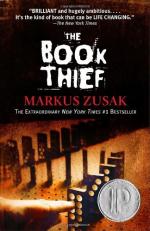|
This section contains 4,069 words (approx. 14 pages at 300 words per page) |

|
SOURCE: "Japanese Theatre from the 1980s: The Ludic Conspiracy," in Modern Drama, Vol. 35, No. 1, March, 1992, pp. 127-36.
In the following essay, Rolf analyzes major characteristics of Japanese theater in the 1980s.
Twentieth-century Japanese theatre grew out of attempts to create a new Japanese theatre befitting the new Japan. As was the case with the immense socio-economic reform Japan undertook in the late nineteenth century, the model for the new theatre was the West, specifically the works of Shakespeare, Chekhov, Gorki, and Ibsen. By the late 1920s, what came to be known as shingeki (literally, new theatre) had produced a significant body of artists and works. The new theatre was intellectual in tone and lacked a popular audience. Much of it was characterized by a socialist realism that used the stage for the exploration of socio-political issues. Another strain of the new Western-inspired realistic theatre sought a psychological and...
|
This section contains 4,069 words (approx. 14 pages at 300 words per page) |

|


